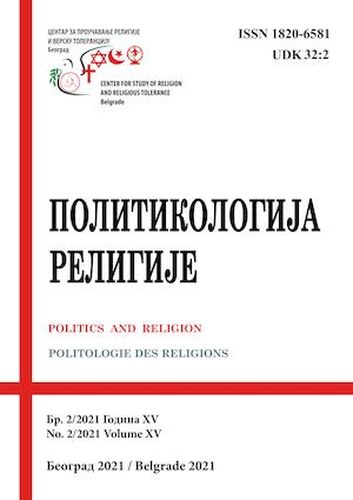RELIGIOUS VOTING IN THE 2020 PRESIDENTIAL ELECTION: TESTING ALTERNATIVE THEORIES
RELIGIOUS VOTING IN THE 2020 PRESIDENTIAL ELECTION: TESTING ALTERNATIVE THEORIES
Author(s): Lyman A. Kellstedt, James L. GuthSubject(s): Politics and religion
Published by: Центар за проучавање религије и верску толеранцију
Keywords: ethnoreligious; restructuring theory; traditionalists; modernists
Summary/Abstract: Scholars of American electoral politics have documented the recent partisan realignment of religious groups. Indeed, careful analysts often find that religious variables are better predictors of partisan choice than classic socioeconomic divi-sions. Still, there has been relatively little effort to put this religious realignment in both theoretical and historical perspective. In this article, we update our pre-vious work on the historical evolution of religious partisanship, demonstrating the continued relevance of ethnocultural (or ethnoreligious) theory, utilized by po-litical historians, and restructuring theory, an important sociological perspective. Both viewpoints help us understand presidential elections since the 1930s, as we demonstrate with data from a wide range of surveys. After utilizing the 2020 Co-operative Election Study to examine the contemporary voting of ethnoreligious groups in greater detail, we test the impact of religious variables controlling for other demographic, attitudinal, and partisan influences and find that religious identities and orientations often retain independent influence even under strin-gent controls for other factors shaping the presidential vote.
Journal: Политикологија религије
- Issue Year: XV/2021
- Issue No: 2
- Page Range: 257-281
- Page Count: 25
- Language: English

